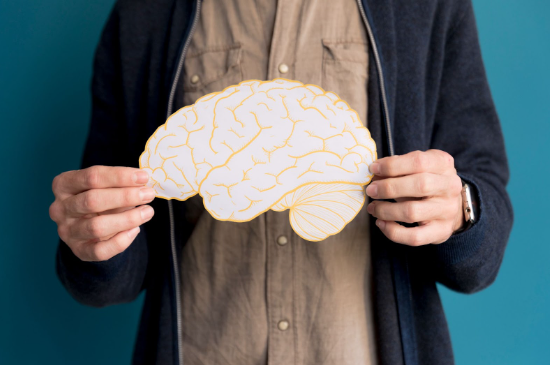
Photo from freepik
Introduction
Brain injuries can drastically alter cognitive and daily functioning, affecting memory, attention, and executive abilities. These changes often disrupt an individual’s capacity to perform everyday tasks, impacting their quality of life. Cognitive Occupational Therapy, also known as cognitive training, plays a pivotal role in rehabilitation, aiming to restore cognitive functions and enhance the ability to engage in daily activities.
What is Cognitive Occupational Therapy?
Cognitive Occupational Therapy is a specialised approach within occupational therapy focused on assessing and improving cognitive functions. This therapy addresses cognitive loss that arise from brain injuries, such as memory impairments, attention difficulties, and problems with executive functioning. The primary goal of this therapy is to help individuals:
- Regain independence in daily activities;
- Enhance their ability to participate in work or school and
- Improve overall quality of life.
How Cognitive Occupational Therapy Supports Brain Injury Rehabilitation
Assessment and Evaluation
At the heart of effective cognitive rehabilitation is a thorough assessment. The Cognitive Function Assessment - Occupational (CFA-O), offered by Allied Health for Wellness, is an integral tool in this process. This assessment evaluates key cognitive domains such as attention, memory, and executive function, The mentioned domains helps understand an individual's cognitive strengths and challenges in the context of employment and rehabilitation. By identifying specific cognitive impairments, therapists can develop targeted intervention plans that address these areas, leading to more effective rehabilitation outcomes.
Therapeutic Interventions
Cognitive occupational therapy interventions are diverse, encompassing techniques like memory exercises, attention training, and executive function coaching. A standout intervention is the ReWired program. ReWired was designed as a specific intervention to drive improvements in quality of life and return-to-work outcomes. It is evidence-informed and multimodal, incorporating practices such as cognitive remediation therapy, psychology services, workers compensation counselling, and environmental and occupational modification.
Conclusion
Cognitive Occupational Therapy is essential for individuals recovering from brain injuries, as it provides targeted support to regain cognitive abilities and improve daily functioning. The CFA-O assessment and the Rewired program offered by Allied Health for Wellness exemplify the benefits of a specialised and comprehensive approach to cognitive rehabilitation.
If you or a loved one is facing cognitive challenges due to brain injuries or neurological conditions, explore the CFA-O assessment and ReWired program at Allied Health for Wellness. Our expert team is ready to support you on your journey to cognitive well-being. Connect with us today to schedule a FREE 10-minute discovery call and take the first step towards improving your cognitive health and quality of life.
References
- Cicerone, K. D., et al. (2019). "Evidence-Based Cognitive Rehabilitation: Updated Review of the Literature From 2009 Through 2014." Archives of Physical Medicine and Rehabilitation, 100(8), 1515-1533.
- Togher, L., McDonald, S., Tate, R., Power, E., & Rietdijk, R. (2014). "Assessing and managing cognitive-communication disorders in traumatic brain injury: Perspectives from the literature." Brain Impairment, 15(1), 58-69.
- Occupational Therapy Australia.(OTAUS) (2020). Cognitive Rehabilitation in Occupational Therapy.
